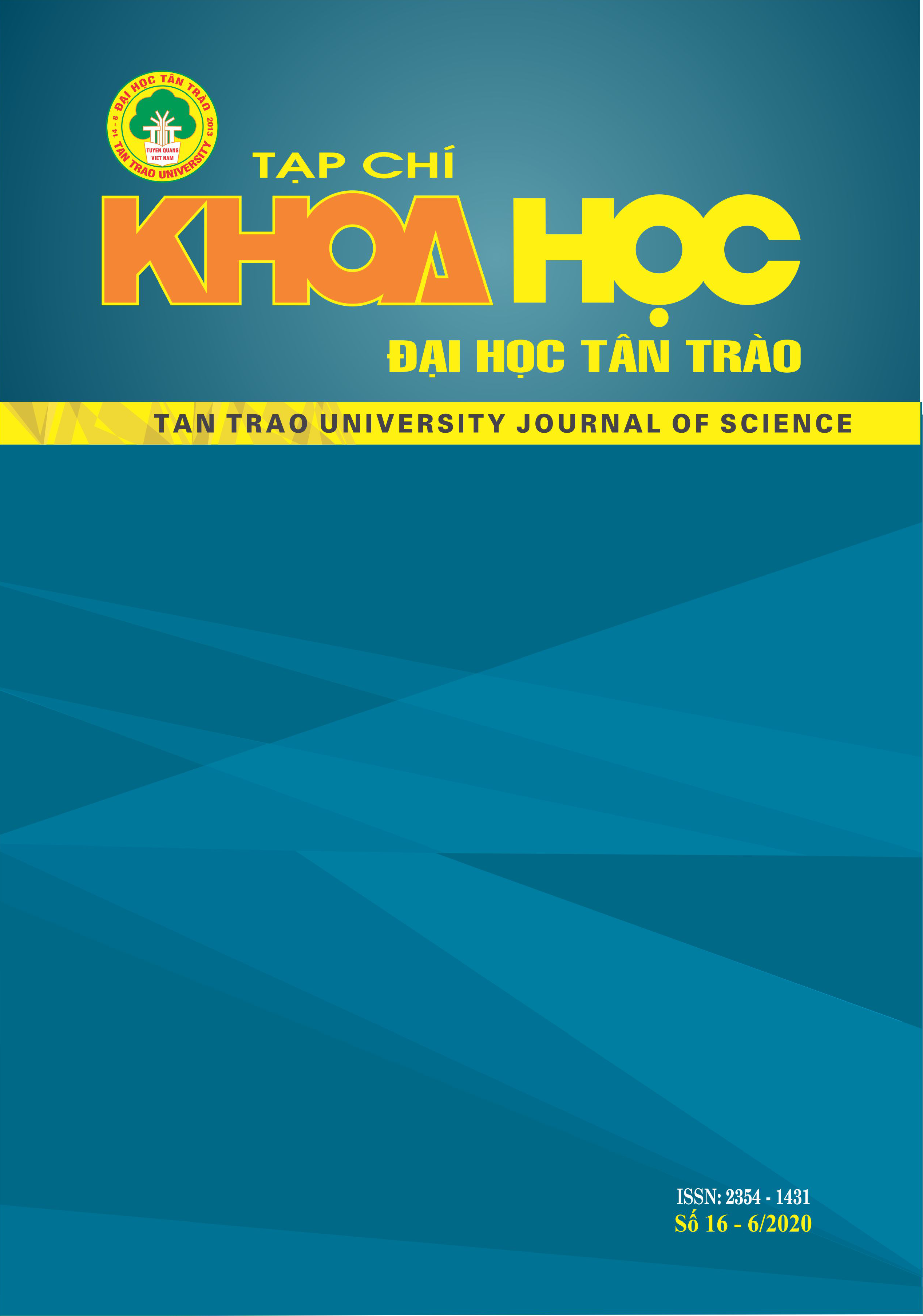Exploiting the potential for eco-tourism development in Luc Ngan district, Bac Giang province
DOI:
https://doi.org/10.51453/2354-1431/2020/326Keywords:
Magic, tourism, guides, belief, mysteriousAbstract
In Vietnam, tourism is identified as one of the country's key economic sectors.
Tourism not only brings economic benefits, plays a role of promoting and preserving traditional cultural values, but also has the significance of protecting the natural and social environment with the form of eco-tourism. Each locality in our country has the potential to develop tourism in general and eco-tourism in particular. The article aims to study the exploitation of eco-tourism potential in Luc Ngan district, Bac Giang province. We use historical and logical methods, interdisciplinary research methods
(synthesis, statistics, analysis, comparison ...), especially the ethnographic fieldwork method to conduct the gathering data and conducting research. The article clarifies and assesses the potential of ecotourism, researches the actual situation of exploiting the potential of local tourism development; on that basis, The article considers and proposes orientations and solutions to effectively exploit the potential of eco-tourism development in Luc Ngan district, Bac Giang province. The research results contribute to confirming the ecotourism potential of Luc Ngan district and it is the basis for the locality to build a comprehensive project, orienting and implementing solutions to develop eco-tourism and tourism.
Downloads
References
1. Nhiều tác giả (2018), Luật Du lịch (Hiện hành), Nhà xuất bản Chính Trị Quốc Gia Sự Thật.
2. Thư viện Học liệu Mở Việt Nam (VOER), https://voer.edu.vn/.
3. UBND huyện Lục Ngạn (2018), Báo cáo tình hình Kinh tế - Xã hội năm 2018.
4. https://lucngan.bacgiang.gov.vn
5. Nguyễn Đình Hoè, Vũ Văn Hiếu (2001), Du lịch bền vững, Nxb Đại học Quốc gia Hà Nội.
6. IUCN, VNAT, ESCAP (1999), Tuyển tập báo cáo hội thảo “Xây dựng chiến lược quốc gia về phát triển Du lịch sinh thái tại Việt Nam, Hà Nội.
Downloads
Published
How to Cite
Issue
Section
License

This work is licensed under a Creative Commons Attribution-ShareAlike 4.0 International License.
All articles published in SJTTU are licensed under a Creative Commons Attribution-ShareAlike 4.0 International (CC BY-SA) license. This means anyone is free to copy, transform, or redistribute articles for any lawful purpose in any medium, provided they give appropriate attribution to the original author(s) and SJTTU, link to the license, indicate if changes were made, and redistribute any derivative work under the same license.
Copyright on articles is retained by the respective author(s), without restrictions. A non-exclusive license is granted to SJTTU to publish the article and identify itself as its original publisher, along with the commercial right to include the article in a hardcopy issue for sale to libraries and individuals.
Although the conditions of the CC BY-SA license don't apply to authors (as the copyright holder of your article, you have no restrictions on your rights), by submitting to SJTTU, authors recognize the rights of readers, and must grant any third party the right to use their article to the extent provided by the license.


